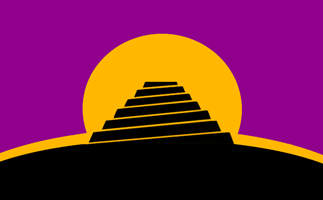User:Aquatiki
From FrathWiki
Jump to navigationJump to search
| Birth: | Planet Earth |
| Profession: | Upper school (high school) math teacher |
| Natural languages: | English, Korean, Ancient Greek, Hebrew, Aramaic, Syriac, Akkadian, Ugaritic, Yiddish |
| Created conlangs: | Weddish, Parseltongue, Proto-Polynesian Hebrew, Syrenian, Semitic Korean |
| Other conlangs: | Na'vi, Latin, Syrunian, Klingon |
| Interests: | Philosophy, theology, math |
| More information: | Feel free to contact me about anything |
I'd love to chat any time, so feel free to email me anything you like, any time.
I mainly like IAL (International Auxiliary Languages), which part of Universal Languages project. These 15 languages are (not all by me):
- Dan'a'yo - 1.5 billion people in China, Japan, the Koreas, and part of Vietnam (combination of sprachbunds)
- Neo-Sanskrit - 1.4 billion people on the Indian subcontinent (Indo-Aryan)
- Interlingua - 800 million people in the Romance-speaking world (Romance of Indo-European)
- Folksprak - 500 million people in the Germanic world (Germanic of Indo-European)
- Kintu - 450 million people in the Bantusphere (Bantu of Niger-Congo)
- Indo-Malay - 380 million people in Maritime Southeast Asia
- Guosa - 340 million people in West Africa (combination of sprachbunds)
- Interslavic - 300 million in the Slavisphere (Slavic of Indo-European)
- Middle Semitic - 290 million speak the Arabics and Israeli (and Syriac) (Semitic of Afro-asiatic)
- MSEAL - 233 million (combination of sprachbunds)
- Dravindian - 230 million (Dravidian)
- Zens - 200 million (Iranian of Indo-European)
- Jalpi Turkic - 170 million (Turkic)
- SEDES - 117 million from the Horn of Africa sprachbund
- Balkan - 60 million people in the sprachbund
I have a naturalistic auxlang with a rich history for my personalang, called Weddish. Like a lot of my personal projects, it is a Jewish language. I also imagined some fictive histories. A big project is Oceanic Hebrew, which has Austronesian Hebrew, Polynesian Hebrew, and a minilang called Neo-Oceanic Hebrew.
